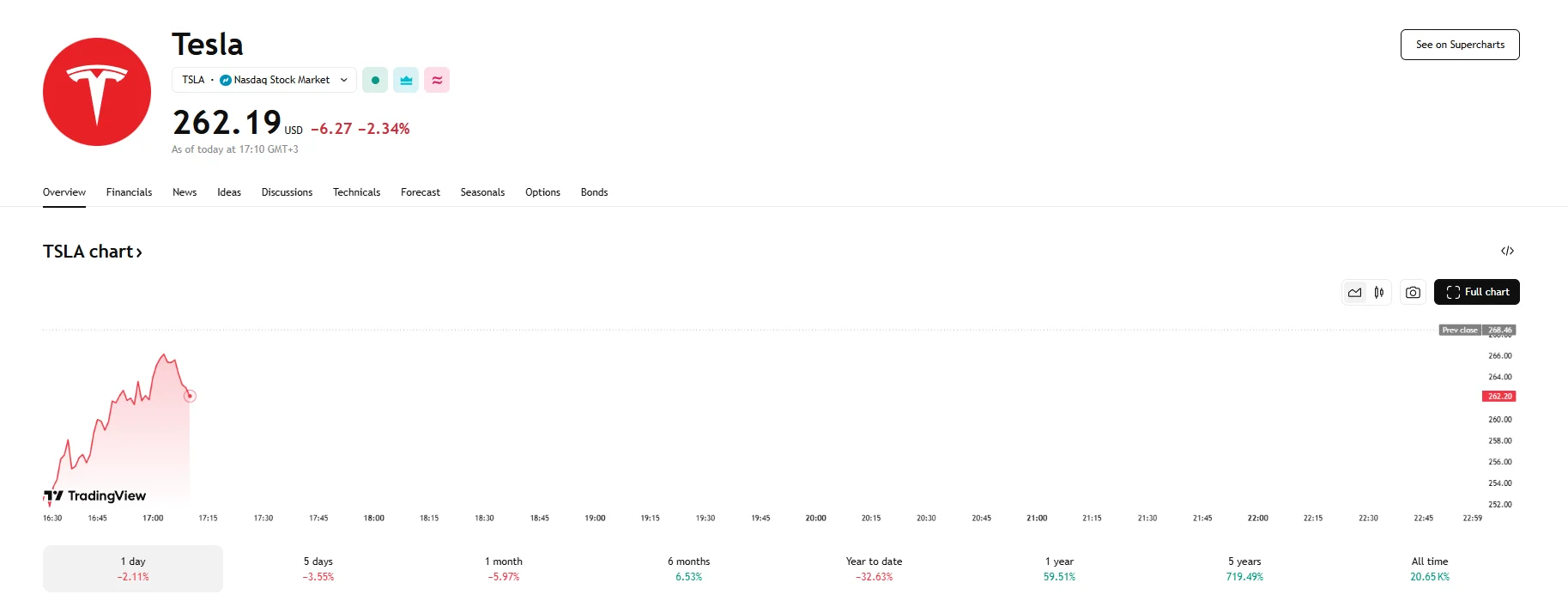Key moments
- Tesla reported its lowest quarterly delivery total since the second quarter of 2022, with global deliveries sinking to 336,681 units in Q1 2025.
- The company’s share price sank 2.34%.
- The delivery figures have caused worry among investors about the company’s upcoming Q1 financial report.
Tesla Stock Falls on Weak Delivery Report
Tesla published its first-quarter deliveries report on Wednesday, which revealed figures significantly below market expectations. As a result, the company’s stock tumbled by 2.34%, with its share price falling to $262.19.

According to the electric vehicle manufacturer’s report, global deliveries fell to 336,681 units for the first quarter, substantially lower than the Bloomberg consensus estimate of 390,342. Tesla attributed the lower-than-expected delivery numbers to disruptions caused by the changeover of Model Y production lines across its four global factories, which led to several weeks of production being lost over the first quarter. However, Tesla also noted that the ramp-up of the new Model Y production was progressing smoothly.
In addition to the delivery figures, Wednesday also saw the disclosure that Tesla’s first-quarter production stood at 362,615 vehicles on a global scale. In addition, Q1 also saw the company deploy 10.4 GWh of products utilized for the storage of energy. Tesla’s first-quarter financial results are due to be released on Tuesday, April 22nd.
The first-quarter delivery figures represented a 13% decrease compared to the same period last year when Tesla delivered 386,810 vehicles. This decline has raised concerns among investors about the upcoming earnings report.
Tesla’s sales have faced challenges in several key markets. Recent registration data from Europe indicated a decline in March, suggesting continued sluggishness in one of the company’s significant regions. Furthermore, CEO Elon Musk’s political activities have reportedly impacted the Tesla brand, contributing to the sales slowdown.
In addition, the company’s stock has experienced a significant decline in 2025, with shares plunging over 30%. This drop reflects growing investor concerns about the company’s sales performance and the potential impact of production setbacks and political controversies.





